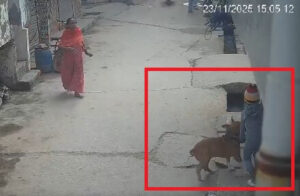SC Rafale ruling: Bias is threat to press freedom

The Supreme Court of India (File Photo)
The Supreme Court of India (File Photo)
New Delhi: The Supreme Court has said it has noticed a growing trend of bias in sections of the media.
Justice K.M. Joseph made the observation on Wednesday while delivering a ruling related to the Rafale deal case.
Judge Joseph underlined the need for a free and unbiased press.
The court said: “If freedom is enjoyed by the press without a deep sense of responsibility, it can weaken the democracy. In some sections, there appears to be a disturbing trend of bias.
“Controlling business interests and political allegiances appear to erode the duty of dispassionate and impartial purveying of information.”
The court observed that the press played a crucial role in strengthening and maintaining a vibrant democracy.
“The visual media, in particular, wields power… Its reach appears to be limitless and no segment of the population is impervious to its influence,” said Justice Joseph.
Therefore, he said, information that outflows from the media should remain unbiased and nothing should be considered other than the truth.
Delving further into the aspect of free press, the court observed that journalists should be fearless, free and unbiased.
“Bias comes in many forms. Bias, if it is established as per the principles which are applicable, is sufficient to vitiate the decisions of public authorities.”
He said that transmitting biased information was contrary to true freedom. “In fact, the right of the press in India is no higher than the right of the citizens under Article 19(1)(a).”
The article of the Indian Constitution says that all citizens have the right to freedom of speech and expression which is the bedrock of many other rights of citizens under the Constitution, observed the court.
Justice Joseph said: “The ability of truth to be recognised by a discerning public in the supposedly free market place of ideas forms much of the basis for the grant of the unquestionable freedom to the press including the media houses.”
IANS





